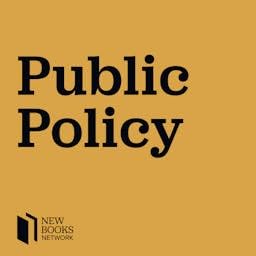Each year, as many as 250 million Americans face civil legal problems like eviction, debt collection, and substandard housing. These problems are disproportionately shouldered by racially and economically marginalized people, particularly women of color. Civil courts and legal aid organizations are supposed to protect their rights, yet more than 90 percent of low-income people receive inadequate or no legal assistance. Instead, access to justice is reserved for those who can afford its high price. For those who can’t, the repercussions can be devastating, from homelessness and loss of public benefits to broken families and diminished health. Uncivil Democracy: How Access to Justice Shapes Political Power (Princeton UP, 2026) looks at the US civil justice system through the eyes of the people whose very citizenship is indelibly shaped by it. Jamila Michener and Mallory SoRelle show how civil legal problems, and the institutions meant to address them, greatly erode trust in the legal system among marginalized communities, undermining their broader sense of democratic citizenship and political standing. While legal representation offers vital protections, increased access to justice through an ever-growing supply of lawyers does not address the structural problems that generate demand for lawyers in the first place. Looking at cases involving unfair evictions and substandard housing, Michener and SoRelle demonstrate how community groups such as tenants’ unions can fill this justice gap and provide the means to build political power that transforms the conditions that create precarity. Drawing on eye-opening qualitative evidence and a wealth of historical and survey data, Uncivil Democracy explains why collective organizing holds the greatest promise for altering the systems that create civil legal problems and exercising the political power necessary for meaningful change. Host Ursula Hackett is Reader in Politics at Royal Holloway, University of London, where she specialises in the study of public policymaking and litigation in the US. A former British Academy Mid-Career Fellow, she is the author of the award-winning book,America’s Voucher Politics: How Elites Learned to Hide the State (Cambridge University Press, 2020). Jamila Michener is Professor of Government and Public Policy at Cornell University and inaugural director of the Center for Racial Justice and Equitable Futures. She is the author of the award-winning book, Fragmented Democracy: Medicaid, Federalism, and Unequal Politics (Cambridge University Press, 2018). Mallory SoRelle is the Tony and Teddie Brown Associate Professor of Public Policy at the Sanford School of Public Policy at Duke University. She is the author of Democracy Declined: The Failed Politics of Consumer Financial Protection (University of Chicago Press, 2020), based on her award-winning doctoral dissertation. Learn more about your ad choices. Visit megaphone.fm/adchoices Support our show by becoming a premium member! https://newbooksnetwork.supportingcast.fm/public-policy
Más
Menos
 56 m
56 m 50 m
50 m Feb 21 20261 h y 7 m
Feb 21 20261 h y 7 m Feb 20 202637 m
Feb 20 202637 m 1 h y 1 m
1 h y 1 m Feb 14 202646 m
Feb 14 202646 m 30 m
30 m 56 m
56 m
